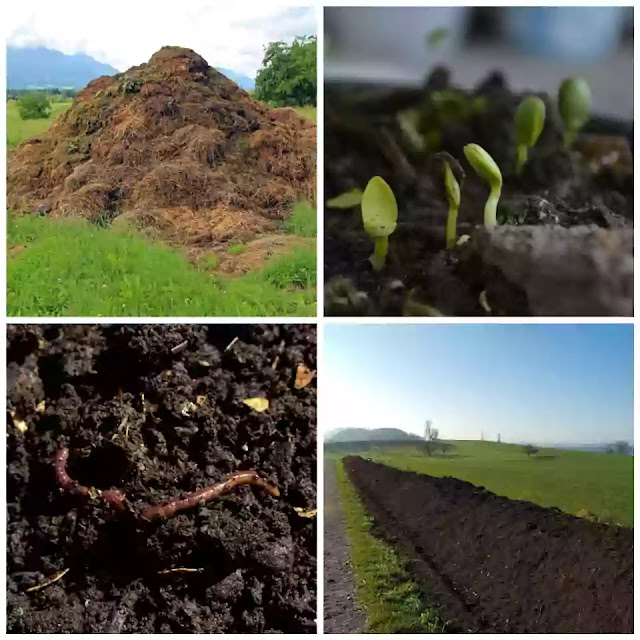Although people practice on more than 35% of the total land of South Africa as agricultural land. In comparison to this, organic farming is very small in numbers perspective.
Let's understand the scope of organic farming and Is organic farming profitable in South Africa.
Is organic farming profitable in South Africa?
Per annum organic growth in South Africa
In South Africa, more than 30% of the population is rural. 2.5% of South African GDP is agriculture-dependent. This is a very small percentage for a country like South Africa.
There are not many options to make a change in South African agriculture structure and techniques.
Although on a fundamental level, it is possible to make a shift from chemical fertilizers to organic fertilizers. It can improve soil fertility and is good for sustainable agriculture.
There is a portion of farmers in South Africa that practice organic farming on more than 50,000 hectares.
Organic farming vs non-organic farming in South Africa
No one can make a sudden change in traditional crops fertilizers. The major portion of agriculture uses chemical fertilizers to get high production.
More than 30 million hectares of agricultural land use chemical fertilizers. These crops are seasonal crops and farmers can't take a risk with the production of their crops.
On the other side, organic farming land is not used for seasonal crops. It uses to grow short-term organic vegetables, fruits, and gardening.
Why there are fewer people in South Africa those practice organic farming officially?
Let's address some of the major points that why organic farming is not so popular in South Africa-
- It takes time to make organic compost where you can directly buy chemical fertilizers from the market.
- Organic compost work slowly and take more time to yield production.
- Organic compost asks for a large space if you are going to use it in larger fields.
- People use chemical fertilizers because the 1kg of organic compost doesn't contain enough of the necessary elements that contain chemical fertilizers in their 1/4th weight.
Is organic farming profitable in South Africa?
In small vegetable farms, yes. In mushroom cultivation, organic farming is very good and cheaper. We can't say how profitable organic farming is on a larger scale of seasonal crops in South Africa. But it is certain that the percentage of organic farmers in South Africa is very less and growing slowly.
Although organic vegetable farmers mostly earn a good amount of money from their vegetable farms. From one hectare, in one season, farmers can earn R55,000 from organic farming.
Things farmers should be aware of Market organic compost
Some of the encouraged farmers sometimes become ready for organic farming but they prefer to save their time so they buy organic compost directly from the market. Let's understand what points you should notice before buying organic compost from the market-
- First, you must look at the color of the market compost. If it is black and brown, then it is fine at a first impression.
- After confirming the color, you need to check the moisture of that compost. If moisture is 60% to 70%, then it is good.
- You should ask for a pH scale from the shop owner to check the pH of organic compost. If it is not between 7.1 to 7.7, then it is not good for your crop. If it is between this range, then you can move on to further points.
- The compost should not be gooey or sticky. If it smells like rotten eggs, then don't buy it. It should smell similar to soil.
Organic farming at the commercial level
Selling organic compost at a commercial level
There are not so many individuals or companies in South Africa that sell organic compost at a commercial level. As organic farming is increasing in South Africa, it can be a good business model to sell organic compost.
You should start as a local supplier first. To start an organic compost-making farm, you need to register your organic farm with the government.
Once things become settled, you need to do calculations charts, arrangements, and implementation. Next, you need marketing for your compost and then transportation.
There is low competition in organic compost selling at the commercial level. It can be a highly profitable business.
Note: We will make a report on How to make an organic compost making farming at the commercial level soon. When it will be ready, you will get a link here.
Using organic compost on a commercial level
Organic farming is increasing in South Africa. Still, farmers grow only some seasonal vegetables and fruits through organic farming at the commercial level.
The most popular crops in South Africa don't practice organic farming.
The consumption of organic compost is still to come up with a huge change in South Africa commercially.
We hope that South African government will encourage farmers to increase number of organic crops commercial farms

